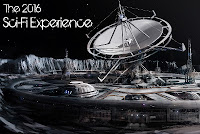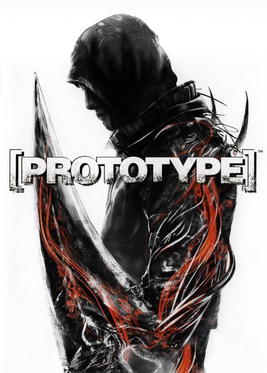Kushiel’s Avatar by Jacqueline Carey
Published: Tor, 2003
Series: Book 3 of Kushiel’s Legacy
The Book:
“After the events of Kushiel’s Chosen, Phèdre and Joscelin enjoy a decade of peace together. One thing mars their happiness—the knowledge that Phèdre’s childhood friend Hyacinthe is still trapped eternally on a lonely island by the curse of the angel Rahab. She has spent these years in pursuit of the only power that may grant his freedom: the Name of God.
Help may come from an unexpected place, but not without a price. Melisande Shahrizai, still imprisoned in La Serenissima, has learned that her beloved son has vanished. When her own agents fail, she turns to her nemesis Phèdre for help, offering her knowledge of the Name of God in exchange. Phèdre and Joscelin’s journey may well take them through Hell and back, and they will have to find the strength to endure the torment and to protect the ones they love.” ~Allie
This is the final book of Phèdre’s Trilogy, the first half of Kushiel’s Legacy. I read this one as a part of a read-along, and our spoiler-filled discussions can be found here: Part 1, Part 2, Part 3, Part 4, Part 5, Part 6, Part 7, Part 8. We’re actually picking up with the first book of Imriel’s Trilogy, Kushiel's Scion, in a few days (the schedule has been announced here), so please hop on over to our goodreads group, or join us on twitter (@SFFReadAlongs) if you’d like to join the fun!
My Thoughts:
This novel provides the conclusion of Phèdre’s Trilogy, though the series continues for another six books. To a large extent, then, it involves wrapping up her story while introducing the bridge to the next third of the story, Melisande’s son Imriel. Phèdre is now in her thirties, and I once again loved seeing how much she and Joscelin had grown and matured in the intervening years. I especially liked their partnership, and how well the two of them have now come to understand and appreciate one another. Their love is really something beautiful, and I think it has grown into something unbreakable as well. The action of this novel is bookended by useful recap at the beginning and a long, grand conclusion.The central novel part of the novel is composed of two mostly separate storylines, that of finding Imriel and that of freeing Hyacinthe.
The first storyline was the most tense and compelling to me, probably in part because I did not really know what would happen or what exactly Phèdre and Joscelin would face. This story introduced us to an important character, Imriel, but also took us to the darkest place in the entire trilogy. Imriel has been taken by child slavers, and has been sold into a truly horrific situation. In her pursuit of him, Phèdre is driven not just by her sympathy for an innocent child or her promise to Melisande, but also as an avatar of Kushiel’s justice. There is a lot of sexual content in these books, but in this section it goes beyond that, way past the games of BDSM and into actual torture. It was very hard to read, and I don’t think I could have continued with the book if it had been no hope near at hand. However, this is a story about overcoming darkness, and so I was eager to read of how they would defeat that sickening level of evil. These experiences are not something the characters can come to peace with quickly, and I expect their memories will continue to play a role in Imriel’s Trilogy.
For the second storyline, Phèdre’s desire to rescue Hyacinthe has been such a constant throughout the trilogy that I always assumed she would eventually achieve it. I felt like I pretty much knew all the major points of this plot already, so I was mostly following along with Phèdre to fill in the details. This part of the story involves more entertaining travel and exposure to new cultures, including an isolated nation that a commenter in the read-along pointed out was modeled after Ethiopian Jews. The traveling and the culmination of the journey was interesting, but didn’t have the same tension as the rescue of Imriel. After all was said and done, the conclusion of the story was suitably impressive for a farewell to the adventures of the Comtesse Phèdre nó Delaunay de Montrève.
My Rating: 4/5
Kushiel’s Avatar provides a satisfying conclusion to Phèdre and Joscelin’s adventures, while also introducing the hero for the next three books, Imriel, the son of Melisande Shahrizai. In between the beginning recaps and the long resolution of the trilogy, Phèdre and Joscelin followed the two goals of freeing Hyacinthe from his curse and rescuing Imriel from wherever he might have been taken. I felt like the end of the Hyacinthe plotline was a foregone conclusion, but the search for Imriel leads Phèdre to a surprisingly dark and disturbing place. Happily, that darkness can’t last, and this final novel of Phèdre’s journey leaves her in a life that seems like it will be full of love.













